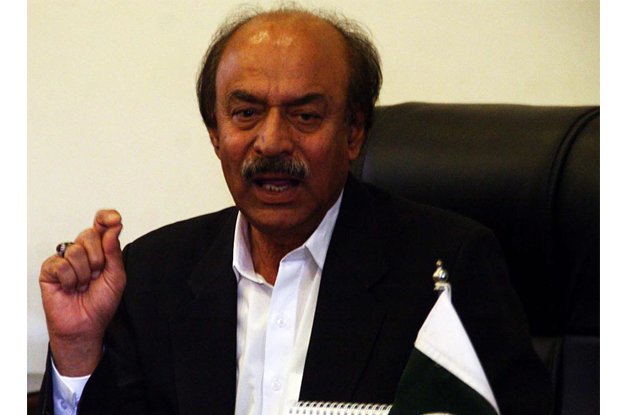Regional dialogue in CPEC held

Karachi: A regional dialogue on the role of parliament in promoting exports, trade and commerce under the China-Pakistan Economic Corridor (CPEC) in Sindh titled ‘CPEC industrial cooperation and its way forward’ was held at a hotel here. The event was organised by the National Assembly Secretariat with the support of Friedrich Ebert Stiftung.
Nisar Khuhro, Adviser to Chief Minister on Universities and Boards, Works and Services, said that industrial cooperation and commerce includes so many things and Pakistan has been a case of lost opportunities. “We have been waiting for years but not inched forward. Democratic governments and undemocratic regimes here have taken their time to do nothing. Our dreams have not been fulfilled,” he said.
“We are a developing country. Our people look at other developing countries and wonder when we will achieve our goal,” he added.
“Because of our poor transmission lines, we cannot distribute power to the entire country. Why else are we going through loadshedding when we have enough power to generate? Sindh alone has the potential of generating thousands of megawatts of renewable energy,” he said.
“When we talk about development, the sky should be the limit for us. But we are lagging in so many sectors, so I may sound blunt but I have to say that perhaps Pakistan is not doing enough on its own. Here we must appreciate the government that thought of cooperation for projects with China, our friend of all seasons. We should reach out to other countries for cooperation, too,” he said.
The CM’s adviser also said that there was a need to build a jetty at Keti Bandar as then we can export coal as we have more than enough of our own.
“Whatever you do, it all comes down to guarantees from the federal government. [I] hope the Parliamentary Committee on CPEC can put weight behind Sindh, so we can achieve something. I should also benefit from development before my grandchildren. So I hope the development processes can be speeded up,” he said.
Sher Ali Arbab, chairman of Parliamentary Committee on CPEC, said that CPEC is an initiative of the federal government but it cannot progress without the participation of the provinces. “The federal government and the provinces and territories need to be closely interacting. A lot of cooperation, coordination and determination are needed,” he said.
“Also, we need foreign investment, industrial growth and investment in human resources as it is the way forward. And for all this we cannot rely on friends alone. We have to make our own initiations, too,” he said.
“CPEC is a game-changer, which has a lot of potential but not without hard work.”
Sadaqat Ali Abbasi, member, Parliamentary Committee on CPEC, also called CPEC a game-changer. “So what is the game? The game has two sides — winning and losing. There are, no doubt, advantages of opening up our country for international trade but there will also be some losing,” he said.
“We have to be prepared for it. A lot of industry here will also be at a disadvantage due to less competitiveness on their part. They may even close because of their low standard and the high standard and competitiveness of foreign industry and the National Assembly and its committee on CPEC is trying its best for all stakeholders to prepare for this kind of game changer, too,” he said.
“The world is moving so fast, and the fastest actions are seen in the world of business. Our academia should also start doing research for what is needed to keep at par with the world in infrastructure and knowledge.”
Earlier, in his presentation about CPEC projects, Chief Economist, government of Sindh Dr Naeem Zafar walked the audience through the energy, infrastructure and special economic zones, including special economic development projects, the KCR, etc.
Dr Jochen Hippler, country director Friedrich Ebert Stiftung, meanwhile stressed the relevance of regional connectivity, which he said didn’t mean China as there are also Afghanistan, Iran, India and Central Asia there also. “So developing regional connectivity does not mean developing it in part, but it means connecting with all countries.”
He also said that export and commerce will not happen just by improving infrastructure. It also meant improving the quality of exports. “CPEC won’t do that for you though it will open a door for you,” he said.
Dr Noreen Mujahid, chairperson, Department of Economics, University of Karachi, said that many nations are going to benefit from Pakistan. “We know that CPEC will enhance our exports and imports. CPEC will not just help economic development here, it also means social development as it is interlinked with economic development.
“It will help expand markets. There will be new markets too, but yes, we will need to improve our competitiveness,” she added.





